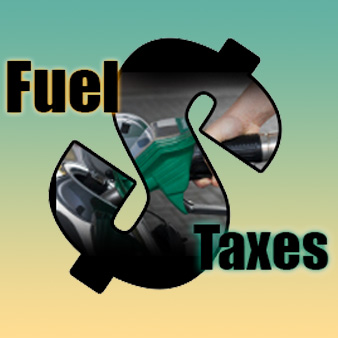Even though the Trump administration is promising to unveil its $1 trillion national infrastructure-funding plan as early as this month, many states are pushing ahead with their own proposals to pay for transportation improvements.
 South Carolina became the latest state to raise fuel taxes when the legislature overrode Gov. Henry McMaster’s veto of the fuel tax increase last month.
South Carolina became the latest state to raise fuel taxes when the legislature overrode Gov. Henry McMaster’s veto of the fuel tax increase last month.
Beginning this year, South Carolina fuel taxes will increase by 2 cents a gallon every July through 2022, for a total increase of 12 cents, to pay for infrastructure projects.
The state’s current fuel tax is 16 cents on both gasoline and diesel and will increase to 28 cents over six years.
Other states that have passed or are considering fuel-tax increases, vehicle-fee increases or bond packages to fund infrastructure include Tennessee, California, Indiana and Montana.
Some state officials say they doubt the Trump plan will make a big dent in their need for road and bridge repairs and replacements, while others are reluctant to rely on public-private partnerships – likely a cornerstone of the Trump plan.
Private investment in infrastructure could include tax incentives for private parties that subsidize big-ticket projects, with those investors recouping their costs through tolls or fares on roads, bridges, rail systems and airports. Tolls are unpopular in many states, especially rural ones.
The U.S. has an $836 billion backlog of needed repairs and improvements to roads and bridges, plus an additional $90 billion backlog for public-transit systems, according to the Federal Highway Administration.
Those needs have grown as the money available from the Federal Highway Trust Fund for states fell by more than 9 percent from 2010 to 2015, according to an Associated Press analysis of the most recent figures from the highway administration.
The federal gasoline tax has remained at 18.3 cents a gallon since 1993, the longest gap between increases. Trump recently said he would consider higher fuel taxes as part of his infrastructure plan, but such a move likely would meet resistance from Congress.
As a result, sevearl states have adopted higher fuel or sales taxes to pay for transportation improvements.
They include:
- Tennessee, where Republican Gov. Bill Haslam signed a bill in April to phase in a 6-cent hike in the gas tax and a 10-cent diesel tax increase
- Indiana, where a transportation plan raises an average of $1.2 billion annually by increasing gas taxes and vehicle fees and gradually shifting fuel sales taxes from the state’s general fund to infrastructure
- California, where a $5 billion annual plan raises fuel taxes and vehicle fees to pay for repairs to state and local roads, while also providing money for public transit and biking and walking trails
- Montana, which recently approved its first fuel tax increase in nearly 25 years
- Wyoming, which earlier this year enacted a law that doubles vehicle and driver’s license fees
- Idaho, Utah and West Virginia, all of which approved transportation bonding measures, with West Virginia’s proposal contingent on voter approval later this year
Transportation funding measures also are pending in Louisiana, Minnesota, Oklahoma and Oregon.




